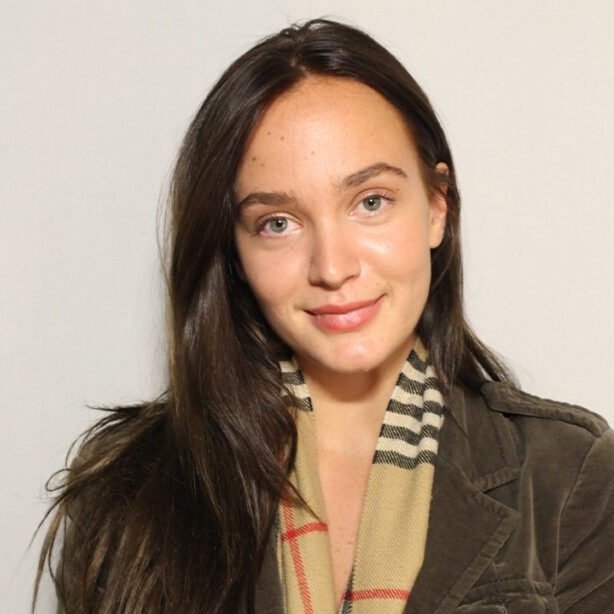Anxhela grew up in Greece during a massive wave of immigration. Her memories of the unrest and bigotry that she observed during her upbringing have inspired her to become an advocate for human rights and equality. Anxhela’s story traces her journey from being a bystander, to a community organizer, to an aspiring attorney and human rights activist.
This story was recorded and produced in partnership with MALA and StoryCorps.
“My story begins way back in Greece. My parents are from Albania, actually: my mom is Bosnian-Albanian and my dad strictly Albanian. They came to Greece as immigrants. They actually ran away because my mother’s family and my dad’s family did not agree with them being together, considering they came from different religious backgrounds. Therefore, they fled.
The lovely country I was born in is also the main entry gate to Europe, which is why it has become such a huge attraction for immigrants and refugees who are seeking asylum. [My story] begins roughly when I witnessed the first injustices that were present; often, when people think of the refugee crisis, they usually begin by thinking about Syria. However, injustices in terms of refugees have occurred long before this [conflict in Syria]. And actually, I remember befriending my first refugee friends from Afghanistan when I was roughly eight years old. So my story begins around that time, when I was still a child.
What I remember is that the playgrounds were suddenly filled with children who looked and presented themselves very differently from the typical Greek kids that looked Caucasian and spoke Greek very fluently. Those children were obviously looked down upon very severely, and what I mean by that is that people would often portray their disdain towards them by beating them up, or basically raiding their homes. The reason for that was also that in Greece, when the economic collapse that occurred, a neo-Nazi regime sort of tried to force its way into the parliament. Therefore, these refugees became a target of nationalist retaliation. I will never not mention this story when I am asked where I come from, simply because it is so underreported, both locally and nationally.
Painting is my therapy, I believe. It is something that I was never good at in school–I actually had a “D” in painting, probably all three years of high school. The reason for that is because when you have such an abstract concept, such as art, it is very hard to engage yourself when receiving instructions. It was something that I could not do as I was instructed, it was purely out of emotion and I took that emotional aspect of it and I formed my own class at a homeless shelter. I had all kinds of students from varying backgrounds, ages, nationalities; and I think, so far, this has been the most fascinating fact about my life is that I got the chance to instruct an art course with so many people that were different from me but, at the same time, exactly the same. They were people who had fallen in love, they were people who, at certain times, felt out of place. They were people who had made bad decisions, good decisions, and they were people who were willing to talk about their life through art–and there is not a better way to talk about your life through expression.
When I become an attorney (if that works out for me), one thing that I would like to do is advocate for due process of law. When I came to the United States, this was when I was first able to realize that I could use my advocacy abilities in any way I could–simply because these opportunities were not given to me back in Greece. We were very limited with what we could do with our education, in a sense.
The first incident of Islamophobia I faced in the United States, regarding that question, is…when I was about fifteen or sixteen years old, I publicly spoke on behalf of the unconstitutionality and violation of due process of Guantanamo Bay. Towards the “Q & A” section of it (which, to be honest, is always my favorite section) two very angry American boys approached me, and they asked me, how can Muslim prisoners deserve human rights if they are not human themselves? Now, if not utterly uneducated, this statement is beyond alarming and it takes me back home, to when xenophobia skyrocketed to an extreme.
Keeping that story in mind, what I would like to do is advocate for all human beings being equal, and all human beings being given the same benefits of the universal declaration of human rights, which should be a legally-binding document that does not take into consideration geographic, religious, or ethnic boundaries. This is one thing that I intend to reform in any way I can and although I’m sure it will be difficult, I think I have a fair chance. Therefore, what I truly have to say is: try your hardest, and try to work around the circumstances that have separated you from the privileged crowd that you surround yourself with.”


